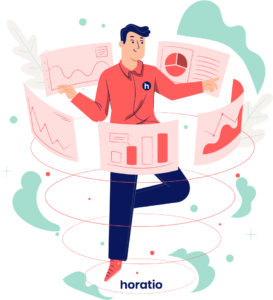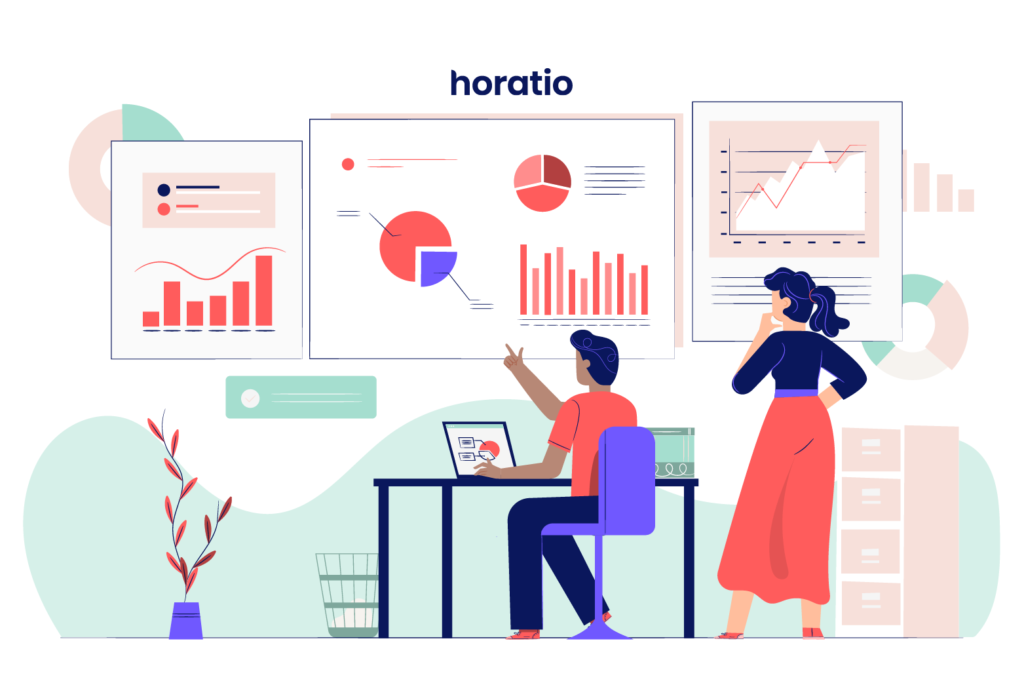In today’s digital age, companies are flooded with vast amounts of data from various sources, including social media, online transactions, customer interactions, and more. This data often holds a treasure trove of information about customer behavior, preferences, and trends.
Without the assistance of experts and advanced technologies like artificial intelligence, extracting meaningful insights from data has proven to be a daunting task.
In this blog, we explore how AI technologies transform data into actionable insights for improved customer understanding.
The Data Explosion
There has been a rapid increase in the relevance of data analytics fueled by the exponential growth of data itself. This growth has been driven by sources like online behavior, social media, and transactions. In fact, data has transformed the way we live and conduct business.
While it presents immense opportunities for insights and innovation, it also demands a strategic approach through data management, processing, and security. Navigating this data-rich landscape effectively is key to harnessing its full potential while ensuring ethical and responsible data practices.
The Role of Artificial Intelligence
Artificial intelligence represents a branch of computer science focused on creating systems that can perform tasks typically requiring human intelligence. AI systems are versatile tools with applications across various domains because they are designed to simulate human-like reasoning, learning, and problem-solving.
One of the key strengths of AI lies in its ability to complement human analysis when extracting insights from vast datasets. While humans excel in creativity, contextual understanding, and complex decision-making, AI systems excel in processing and analyzing massive amounts of data quickly and consistently. By automating routine data processing tasks, AI frees up human analysts to focus on high-level decision-making, creativity, and strategic thinking.
For example, in financial institutions, AI algorithms can sift through massive financial data sets to detect anomalies or patterns, allowing human analysts to make informed investment decisions.
Moreover, there is a powerful synergy between AI and data analytics. AI can significantly enhance the capabilities of data analytics by enabling advanced predictive and prescriptive analytics. Machine learning models can identify hidden patterns, predict future trends, and recommend optimal actions based on historical and real-time data. This synergy empowers businesses to make data-driven decisions with greater accuracy. For instance, in healthcare, AI-driven predictive analytics can help hospitals anticipate patient admissions, enabling better resource allocation and improved patient care.
Read more: Understanding the Risks of AI in Data Privacy
Customer Understanding Through AI
AI empowers businesses to tailor experiences based on individual preferences and past interactions. By analyzing vast amounts of data, including purchase history, browsing behavior, and demographic information, AI algorithms can recommend personalized products, content, or services. Whether it’s an e-commerce platform suggesting related products or a streaming service suggesting shows, personalization enhances customer satisfaction and drives engagement.
By leveraging AI’s predictive analytics capabilities, businesses can forecast future customer behaviors and preferences. This enables proactive marketing strategies, inventory planning, and service improvements, ultimately leading to better customer satisfaction and operational efficiency.
AI-driven sentiment analysis and emotional intelligence tools allow businesses to gauge customer sentiments from various sources such as social media, customer reviews, or support interactions. Understanding customer emotions and opinions helps in evaluating brand perception, identifying areas for improvement, and tailoring communication strategies. In other words, deeper understanding of customer sentiment empowers organizations to refine their products, services, and customer interactions.
AI also excels at customer segmentation by categorizing customers based on their behaviors, preferences, demographics, and purchase history. This segmentation enables businesses to target specific customer segments with personalized marketing strategies. For instance, an e-commerce platform might target a segment of customers interested in electronics with relevant discounts and promotions. Efficient customer segmentation and targeted marketing can significantly improve conversion rates and customer engagement.

Implementing AI-Driven Solutions for Customer Understanding
A strong combination of human agents and AI technologies enables companies to delve deeply into customer data, facilitating a more effective engagement with each customer.
At Horatio, we make the most of our AI-driven, human-first initiatives to take customer understanding to the next level.
Enhance your customer engagement and loyalty by delivering tailored solutions and improving decision-making processes with Horatio.
Contact us today to learn more.






